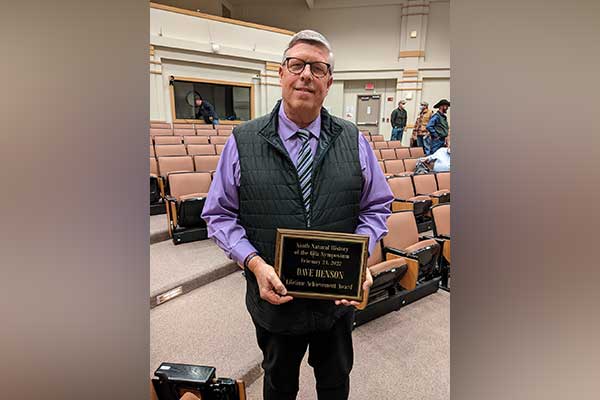By Kris McBride
THATCHER, Ariz. – David Henson, an Eastern Arizona College professor of biology and chair of the College’s Science Division, was recently awarded the Gila Natural History Symposium’s Lifetime Achievement Award at Western New Mexico University. Henson received this award for his enthusiasm and expertise in educational leadership and his passion for teaching biological sciences.
“Dave conveys a love for the sciences and is known for endless preparation and energy in the classroom,” said EAC dean of instruction and curriculum, Dr. Phil McBride. “He truly cares about his students and makes their education his personal responsibility.”
Henson has been instrumental in developing partnerships between Eastern Arizona College and the Bureau of Land Management, U.S. Forest Service, Arizona Game and Fish Department, and Arizona Department of Water Resources. His students benefit from these partnerships and are given the opportunity to work with federal and state employees on water quality and habitat restoration projects.
Henson’s undergraduate research program at EAC’s Discovery Park Campus was underscored in his award recognition. This program includes a ranarium for the Chiricahua leopard frog that is considered Arizona’s most successful ranarium in out-planting frog egg masses.
“Dave had a vision in 2004 to create an undergraduate research experience for biology students at the community college level, something that few colleges across the nation offered. He created BIO 295, Undergraduate Biological Research, which provides EAC students with personal involvement in the scientific research process as they participate in hands-on field study settings.”
Henson has taught for 42 years at the high school and college levels in the Gila Valley. He taught for 17 years at Pima High School and six years at Thatcher High School before beginning his tenure at EAC in 2002. Henson received a bachelor’s in microbiology and a master’s in educational leadership from Northern Arizona University. He also attended University of Arizona for a master’s in biology.









